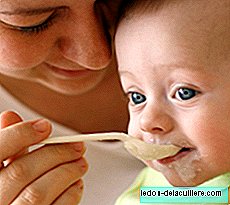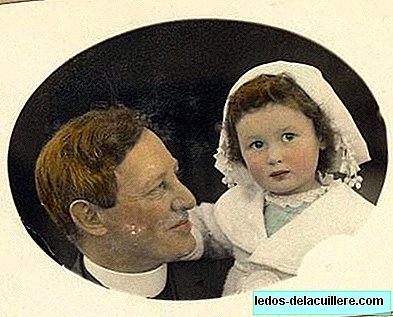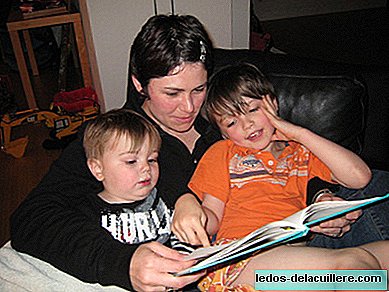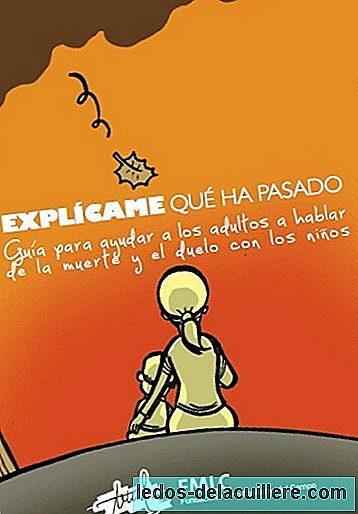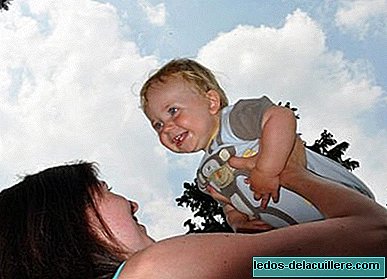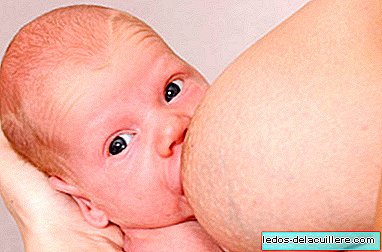
It says a myth of breastfeeding that "as you have little breast, surely you will have little milk for your baby" and that "with that breast so big that you are sure that you will make a lot of milk for your baby", which is myth because it is not true in any of the two variants: The amount of milk a woman produces does not depend on the size of her breast, but how well it clings to the chest, how much it sucks and how often it does.
Do you want more tests? Well, here we bring you more evidence, because if we are guided by appearances, when an overweight or obese woman has a baby, what others expect is that her son or daughter be very well fed only with the breast, but at the time of the truth, it doesn't have to be that way, because a study has seen that obese or overweight women breastfeed less time.
A matter of sensations? Lack of trust?
We know this from a study published in the magazine. Journal of Human Lactation conducted at the University of Iowa, where they surveyed 19,145 mothers who had been mothers between 2004 and 2008. Of all of them, 3,717 (19%) were obese and 4,367 (23%) overweight. Of the total number of mothers, 14,731 women fed their babies with breastfeeding from the beginning, of which 6,467 suspended it earlier than recommended, leaving it around 4 months of life of the baby.
When observing the characteristics of mothers who had stopped breastfeeding, they saw that those who were overweight and obese were between 26% (those of obesity) and 39% (those of overweight) more likely to stop breastfeeding because of the feeling that the baby was not satisfied only with breast milk. In addition, women with obesity had 29% more likely to stop breastfeeding due to breastfeeding difficulties than those with normal weight.
And now I try to answer the questions: A matter of sensations? Lack of trust? Yes and yes, most likely. As we said at the beginning, weighing more or weighing less, or having larger or smaller breasts, does not make a baby eat more or eat less. What can interfere when breastfeeding for longer is the confidence that a mother has in what she is doing and the support she receives from her environment. If any of that fails, any sign of hunger, or any crying thinking that it is because of hunger, because it is not being satiated, can lead to doubt. Doubt leads to guilt and guilt leads to the search for solutions to problems that do not really exist, or that could be solved with some external help.
On the other hand there are difficulties with breastfeeding. Breastfeeding is very easy when everything is going well, but it can be a real hell if something goes wrong, because cracks, pain and crying appear. Baby cries, which seems to never cease (because of hunger) and in the end, perhaps, cries of the mother, who would like to be enjoying with her baby, breastfeeding and instead suffers every time she thinks she has to feed her Because the experience is getting worse. In such cases, the support of the direct environment and the external help that it may receive is of vital importance, because as we saw in another entry a while ago, trust is key when breastfeeding, and those who are clear that they want to breastfeed end up breastfeeding more than those who give it "only if everything goes well."
Should we consider women with obesity and overweight as a population at risk?
The final conclusion of the study says that:
Mothers with obesity and overweight were significantly more likely to stop breastfeeding due to the dissatisfaction of the baby fed only with breast milk. Mothers with obesity were more likely than mothers of normal weight to stop breastfeeding due to difficulties. Education and support for breastfeeding should be improved for this population at risk.
So in view of the data, family members and especially health professionals should consider overweight and obese mothers a risk group in relation to breastfeeding. Because they distrust more, because they feel more guilty or because they believe that their children should eat more than they eat, with their chest they don't know what they eat and need the control that a bottle gives, whatever the cause, they end up leaving the chest before and, consequently, require more information and more support Once they are breastfeeding.
This is important to know when pre-school classes are given and when they go to weight control visits and revisions, where they can move on what will surely happen by 3 months so they don't lose confidence, when many babies start to demand more breast in what we know as the crisis of 3 months, at which time they will also feel that the chest does not fill as much as before, does not get so hard, and that milk no longer drips.
The first is because the baby suddenly needs more milk and "requests" an increase in production crying more than usual so that his mother puts it more on his chest, and the second responds to the fact that breastfeeding is established in a comfortable way for the mother, avoiding overfilling (to avoid engorgements and mastitis) and ending the drip . It is not that the mother produces less, because in reality is producing much more than when the baby was newborn, it is simply that everything works more harmoniously and, despite the great production, the chest does not bother so much.


